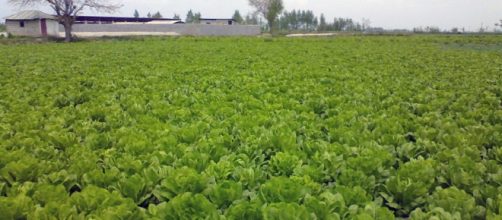John Deere has just acquired a company called Blue River Technology, a startup that was formed in 2011 to automate certain aspects of farming and to provide a means to precisely apply herbicides in order to get rid of weeds while leaving the crops unsullied. The company, which is now operating as a subsidiary of John Deere, is working on automated planters and harvesters.
Cultivating fields a plant at a time
John Deere intends to marry its robotic tractors that can navigate a field within a fraction of an inch with Blue River’s computer vision technology.
The tractors will tow robots across fields. The cameras, operated by machine learning technology, scan plants and distinguish between food plants like lettuce and weeds. The weeds get a squirt of herbicide, and the rest get left alone. The system is already working for lettuce fields, and Blue River is working on one for cotton farmers. The company hopes to develop similar systems for corn and soybeans. The technology could cut down on herbicide use by 90 percent, with the attendant environmental benefits. The Lettucebot also thins lettuce plants, taking out plants that are not growing as well as they could with concentrations of fertilizer, allowing more robust plants to flourish.
Drones to gather data on fields
Blue River also uses aerial drones to collect data on fields. The drones act as a verification tool for the ground cultivation robots.
Robotic planters and harvesters on the horizon
Blue River is also working on robots that can plant and harvest crops. One advantage of this approach is that instead of hiring seasonal farm workers, farmers can rent a robot for planting and harvesting seasons and cultivate their fields with a lot more precision than otherwise would be the case.
The future of farming
Agriculture has been around for over six thousand years and started humankind’s march toward civilization. The introduction of farm machinery in the 18th through the 20th Centuries proved to be revolutionary in enhancing crop yields and freeing up farm labor for other tasks.
The Green Revolution, using concentrated fertilizers and other chemicals, staved off famines that had threatened the world in the 1960s. GMOs are another more recent, albeit controversial, innovation in farming. Some farmers have abandoned fields altogether and have started to grow food indoors, using precise environmental conditions.
Robotic, precision farming is going to help farmers grow more food with less effort, fewer resources, and a decreased environmental impact. The technological revolution in agriculture will be a boon to humankind, making sure that a growing world population has enough to eat.


